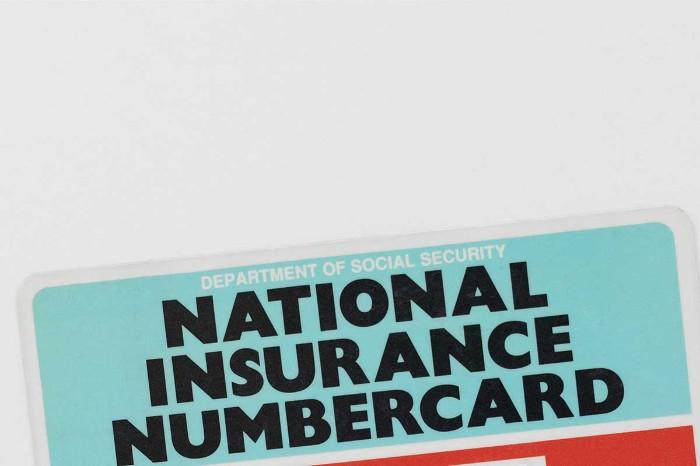Do you need clarification on National Insurance Contributions (NICs)? You're not alone - this form of taxation can be a source of confusion for many. There are many questions to consider, such as: What is NIC? How much do I need to pay and when?
What NIC contributions entitle me to? In this blog post, we aim to provide an overview of everything related to NICs - so that you can ensure you're making the right decisions regarding your taxes.
What are National Insurance Contributions (NICs)?
National Insurance contributions (NICs) are a form of social security paid by employees, employers, and the self-employed. They are collected by HM Revenue & Customs (HMRC). The money collected is used to pay for state benefits, including State Pension.
If employed, self-employed, or an employer, you must make NICs and earn above a certain amount. This amount is known as the ‘primary threshold.’ You will pay Class 1 NICs if you’re an employee, Class 2 NICs if you’re self-employed, and Class 4 NICs if you’re self-employed and make enough money to pay it.
Employers must also pay employees who earn more than the ‘secondary threshold,’ a certain amount each year. This is known as an Employer's National Insurance Contribution.
The amount of NICs you must pay depends on how much money you earn and the type of work you do. The HMRC website has more information about how much you’ll have to pay and the different classes of NICs.
NICs can be used to get certain benefits, including State Pensions. They also help to build up other social security rights such as entitlement to Maternity Allowance and Retirement Pension.
You can get certain tax reliefs by making NICs, such as reduced Income Tax payments. You may also be eligible for other benefits, depending on your circumstances.
It’s important to keep track of your NICs, as there could be penalties if you don’t pay the right amount or fail to pay on time. You can check your NICs record online using HMRC’s Personal Tax Account.
You may be able to defer paying NICs for certain periods if you’re self-employed and have reduced business income due to the coronavirus (COVID-19). Contact HMRC for more information.
If you have any questions about National Insurance Contributions, contact HM Revenue & Customs directly or speak to a tax advisor.
How do NICs affect your annual salary and tax payments?

NICs affect your annual salary and tax payments as they reduce the money you take home each month. The amount of NICs deducted from your salary depends on how much you earn and how much has already been paid in the tax year.
You can use online calculators to work out how much NICs you’ll need to pay each year. This will also help you ensure that you are paying the right amount of tax and not overpaying in any particular period.
In addition, NICs can affect your eligibility for certain benefits, such as the State Pension. To be eligible for a full basic State Pension, you must have paid or been credited with at least ten years of NICs.
If you don’t have enough NICs, you may be able to make voluntary payments to top up your record and get a full State Pension when you retire. You can find out more about this on the GOV UK website.
It’s important to track your NICs and ensure you’re paying the right amount. That way, you can ensure you get the full benefits of making these payments.
Different types of NICs - Class 1, 2, and 3 contributions
There are three types of National Insurance Contributions: Class 1, 2, and 3.
Class 1 contributions are paid by employees who earn more than the primary threshold, which is £183 per week for the 2020/21 tax year. Your employer will deduct your NICs from your pay before giving you your wages.
Class 2 NICs are paid by self-employed individuals who make more than £6,475 yearly. You will need to pay this directly to HMRC.
Class 3 NICs are voluntary payments you can make if you’re not making any other NICs and want to build up your entitlement for certain benefits.
Keeping track of your NICs is important, as they are a key factor in determining how much State Pension you can receive when you retire.
If you have any questions about National Insurance Contributions, contact HM Revenue & Customs directly or speak to a tax advisor. They can help you determine how much NICs you must pay and advise you on other tax-related issues.
When are NICs payable, and who is eligible for exemption or reductions in payments

NICs are payable through your employer’s payroll system or by self-assessment for the self-employed. You must pay NICs if you earn more than the primary threshold of £183 per week for 2020/21.
You may be exempt from paying NICs if you are over the state pension age or earn less than the lower earnings limit of £120 per week for 2020/21. You may also be eligible for a reduction in your NICs payment if you work part-time or are on a low income.
It’s important to keep track of your NICs payments, as they are key factors in determining how much State Pension you can receive when you retire. If you’re self-employed, make sure that you report all of your earnings to HMRC and pay the correct amount of NICs each year.
If you have any questions about National Insurance Contributions, contact HM Revenue & Customs directly or speak to a tax advisor. They can help you determine how much NICs you must pay and advise you on other tax-related issues.
FAQs
What are national insurance contributions NIC used for?
National Insurance Contributions (NICs) provide a range of benefits, including the state pension and other contributory benefits such as jobseeker's allowance and maternity allowance. They also help fund the National Health Service.
What is income tax UK?
Income Tax is a tax that is taken from the earnings of individuals and companies and certain benefits. It is used to help fund public services in the UK. Income Tax rates vary depending on your income level and where you live in the UK.
How do I calculate my National Insurance Contributions?
You can use the HMRC's National Insurance Calculator to work out your NICs. You must enter information such as your age, income, and any allowances you may be eligible for. The calculator will then give you an estimate of how much NICs you owe.
Conclusion
Armed with the information in this blog post, you can now confidently ensure that you get it right regarding National Insurance Contributions. The more informed you are on what exactly NIC entails, as well as how much and when one is supposed to pay, the better decisions you make regarding your taxes. Do your research and reach out for further professional advice if needed.




